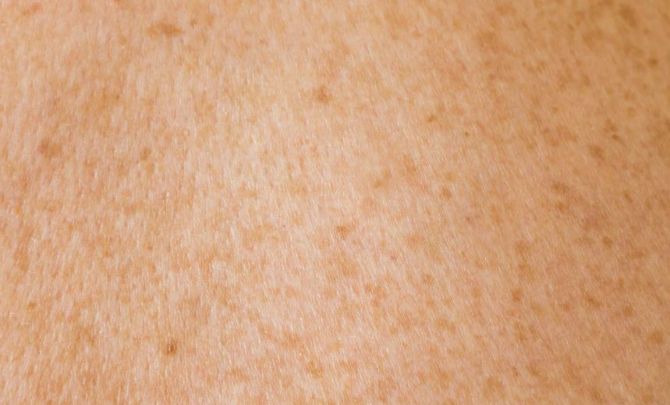Skin pigmentation issues affect countless individuals around the globe. These conditions can range from freckles and sunspots to more significant concerns like melasma or post-inflammatory hyperpigmentation.

Understanding the core elements of pigmentation care is crucial for anyone looking to improve their skin health and even out their complexion. Anyone can attain better skin and greater self-confidence in their looks by treating these issues with the appropriate information and resources.
Understanding Skin Pigmentation
Skin pigmentation is primarily controlled by melanin, the pigment responsible for providing color to the skin, hair, and eyes. Various factors influence the production of melanin, including genetics, UV exposure, hormonal changes, and specific medical conditions. Certain areas of the skin may produce excess melanin, leading to darker patches, while other areas may show a lack of melanin, resulting in lighter spots. Knowing the nature of pigmentation is the first step toward effective care.
Skin pigmentation care is vital for managing and mitigating these irregularities effectively. It doesn’t matter whether that’s pigmentation treatment in Singapore, Australia, or anywhere else; the principles remain consistent globally. A balanced skincare routine tailored to individual needs can help prevent the worsening of conditions. Sun protection is a non-negotiable aspect of this process, as UV rays can exacerbate pigmentation issues, making SPF an essential part of daily skincare.
Common Causes of Pigmentation Issues
Several elements contribute to skin pigmentation changes. Sun damage remains one of the most prominent causes, as prolonged UV exposure stimulates melanin production. Hormonal fluctuations, particularly during pregnancy or hormone therapy, can lead to conditions like melasma, which manifests as brown patches, especially on the face. Post-inflammatory hyperpigmentation often arises after injuries or inflammation, such as acne, exacerbating the skin’s appearance.
Environmental factors, including pollution, can play a significant role in the development of pigmentation issues. Pollutants can trigger inflammatory responses in the skin, resulting in uneven pigmentation. Identifying and understanding these causes is crucial for anyone seeking effective treatment options and preventative measures.
Effective Skincare Solutions
Quality skincare products comprise the foundation of effective pigmentation care. Ingredients such as vitamin C, retinoids, niacinamide, and hydroquinone are well-regarded for their ability to brighten the skin and promote even tone. Vitamin C acts as an antioxidant, helping to protect the skin while reducing dark spots, while retinoids increase cell turnover, leading to smoother skin and reduced pigmentation.
For those looking for more intensive treatments, professional options like chemical peels or laser therapy might be considered. Chemical peels exfoliate the upper layers of the skin, promoting new, healthier skin growth, while laser treatments target and help diminish pigmentation at deeper levels. Consulting with a qualified dermatologist to determine the most appropriate treatment plays a significant role in achieving the desired results.
The Importance of Sun Protection
Sun protection cannot be overstated when addressing pigmentation issues. High-quality broad-spectrum sunscreen should be used daily, regardless of the weather or season, as UV rays can penetrate clouds and influence skin tone even during less sunny periods. Choosing a product with an SPF of 30 or higher offers better protection against damaging UV rays.
Seeking shade during peak sun hours and wearing protective clothing can further minimize exposure. Regular use of sunscreen is essential in preventing existing pigmentation issues from worsening and aids in achieving clearer skin over time. Many individuals have seen remarkable improvements in their skin clarity by making sun protection a daily priority.
Diet and Lifestyle Considerations
A balanced diet can significantly impact skin health and pigmentation. Foods rich in antioxidants, such as fruits and vegetables, are beneficial for maintaining healthy skin and reducing inflammation. A diet high in sugars and processed foods can lead to increased inflammation, which can exacerbate skin conditions.
Staying hydrated is another effective approach to maintaining skin health. Drinking plenty of water helps keep skin cells hydrated, enhancing overall appearance. Incorporating lifestyle changes, such as regular exercise and sufficient sleep, contributes to healthier skin, as these factors improve circulation and promote the body’s natural repair processes.

Choosing the Right Professional Advice
Seeking guidance from a dermatologist experienced in pigmentation care is advisable for anyone struggling with skin discoloration. A professional assessment will help determine the root causes of pigmentation issues and tailor a suitable treatment plan.
Different skin types and conditions require personalized approaches to achieve optimal results. Regular check-ups can help monitor progress and make adjustments to the treatment plan as necessary. The expertise of a specialist ensures that individuals receive the best possible care for their unique skin concerns.
Taking proactive steps in treating pigmentation issues begins with understanding the causes and knowing available solutions. By making informed choices regarding skincare, lifestyle, and professional consultations, achieving clearer skin and reducing pigmentation problems is possible.
